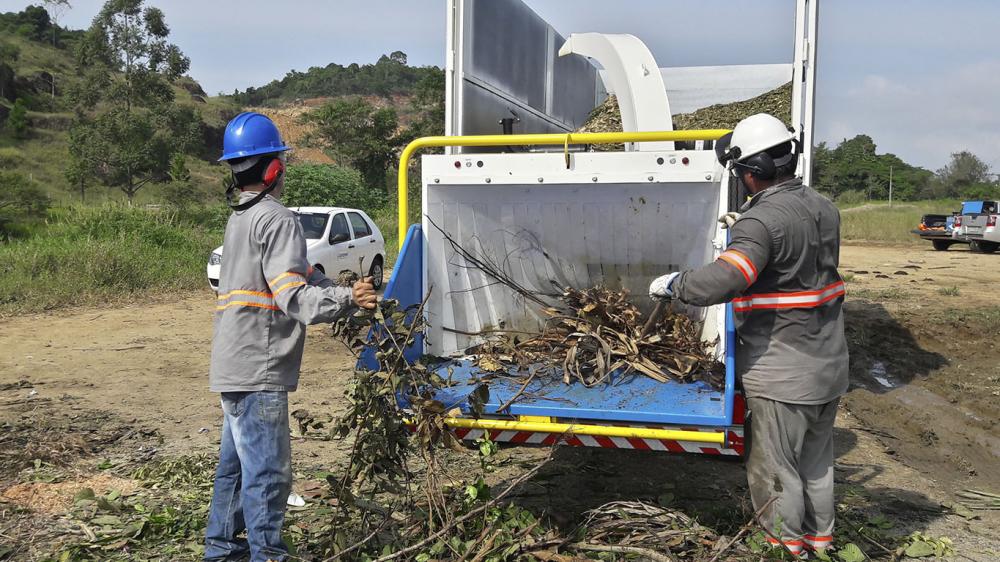The best practices for managing green organic waste to avoid environmental fines and create savings.

News12 de May de 2025
A summary of laws related to waste disposal
The legislation is clear when it comes to waste disposal and environmental crimes. In recent years, Law No. 12,305/10 was enacted, which established the National Solid Waste Policy (PNRS) that determined the necessary practices so that no one incurs an environmental crime. But first, what would be characterized as an environmental crime?
A crime is characterized by any violation of common law, and in the environmental case, it refers to any action that negatively affects fauna or flora, or causes pollution to the environment, such as through improper waste disposal.
Violation of laws related to the disposal of solid waste can result in penalties in the form of fines for the violator of the legislation.
However, it is possible to avoid these fines and penalties and even generate profit in the management of solid waste.
The challenge in managing organic waste from pruning and the consequences of improper disposal
It is a known fact that urban trees, residential areas, and even businesses make the environment much more pleasant and healthy, especially for the environment. However, the maintenance of these plants and trees results in a large volume of pruning, which can generate high costs in transporting the pruning residues, as well as environmental disposal challenges.
The large volume of pruning requires a large number of trips for transporting the material to the disposal site.
Furthermore, the disposal of raw material in nature is one of the sources of greenhouse gases.
The open decomposition of branches, foliage, and food scraps creates an accumulation of greenhouse gases that are released into the atmosphere.
Who is affected by environmental disposal regulations?
Simply put, everyone. Everyone who produces organic waste is involved, but particularly those who engage in large-scale gardening, such as municipalities, companies with green areas, urban cleaning service providers, farmers, and condominiums.
All of these depend on good equipment to properly dispose of organic waste.
The solution for waste disposal - Composting
In order for the urban tree planting process to be profitable, since tree planting is vital, it is necessary to reuse waste, and the best way is through organic composting.
Composting provides the solution to the challenges faced in the various stages of pruning and green waste management.
How does large-scale composting work
Composting is a biological process in which microorganisms transform organic waste into organic compost. This decomposition of organic matter is something that already occurs in the environment, but composting offers accelerated and controlled decomposition.
This process can be done on a large scale by placing drier material at the bottom and wetter material on top, and then periodically mixing the material to aerate the entire compost. The process takes about 4 months but produces an extremely rich organic compost for soil fertilization.
Okay, but what are the benefits of composting
Composting brings benefits in various different areas. One of the benefits is savings in material transportation.
In order for composting to be carried out, it is necessary for the organic material to be shredded, however, the material can be shredded directly at the time of pruning collection and can achieve an 80% reduction in volume compared to non-shredded material. This represents a savings of up to 80% in trips to transport the material, making it possible to transport a much larger amount of material to the disposal or composting site, saving time and resources used in urban cleaning transportation.
Another advantage is that through composting, the decomposition of organic matter does not release greenhouse gases into the atmosphere, so it is a much cleaner process, meaning not having to worry about fines for improper disposal of raw material.
Another benefit is that through this process, an extremely rich organic compost is created for soil fertilization. Now, instead of simply spending time and money to dispose of pruning waste, you have organic compost in hand that can be used in gardening and urban tree planting, without the cost of purchasing artificial fertilizer.
Thanks to this, it is possible to carry out tree planting plans in a profitable way that increases the quality of life for the population, and for service providers, it is a differential that allows for the saving of resources and their application in new ways to generate profit.
What is needed to get started
Firstly, the acquisition of a branch Crusher equipment is necessary to reduce the organic waste from pruning to the necessary granularity for composting.
Next, a location for composting and composters for those who want to make the work easier are necessary.
Now, it is also possible to mix food scraps for decomposition along with pruning waste, which generates a much lower odor than letting the food decompose on its own.
Then, it is necessary to mix the material periodically to aerate it and wait for the process to be completed.
It's as simple as that. Then, just apply the compost wherever you want to significantly improve the quality of the soil, as it is very rich in humus.
This compost is rich in humus
Summary
Composting provides the solution to managing organic waste and avoiding fines and fees related to improper disposal of solid waste.
Composting encourages the reuse of waste, using the material for tree planting and organic and syntropic agriculture, instead of just being disposed of.
It is environmentally friendly and reduces the amount of greenhouse gases released into the atmosphere.